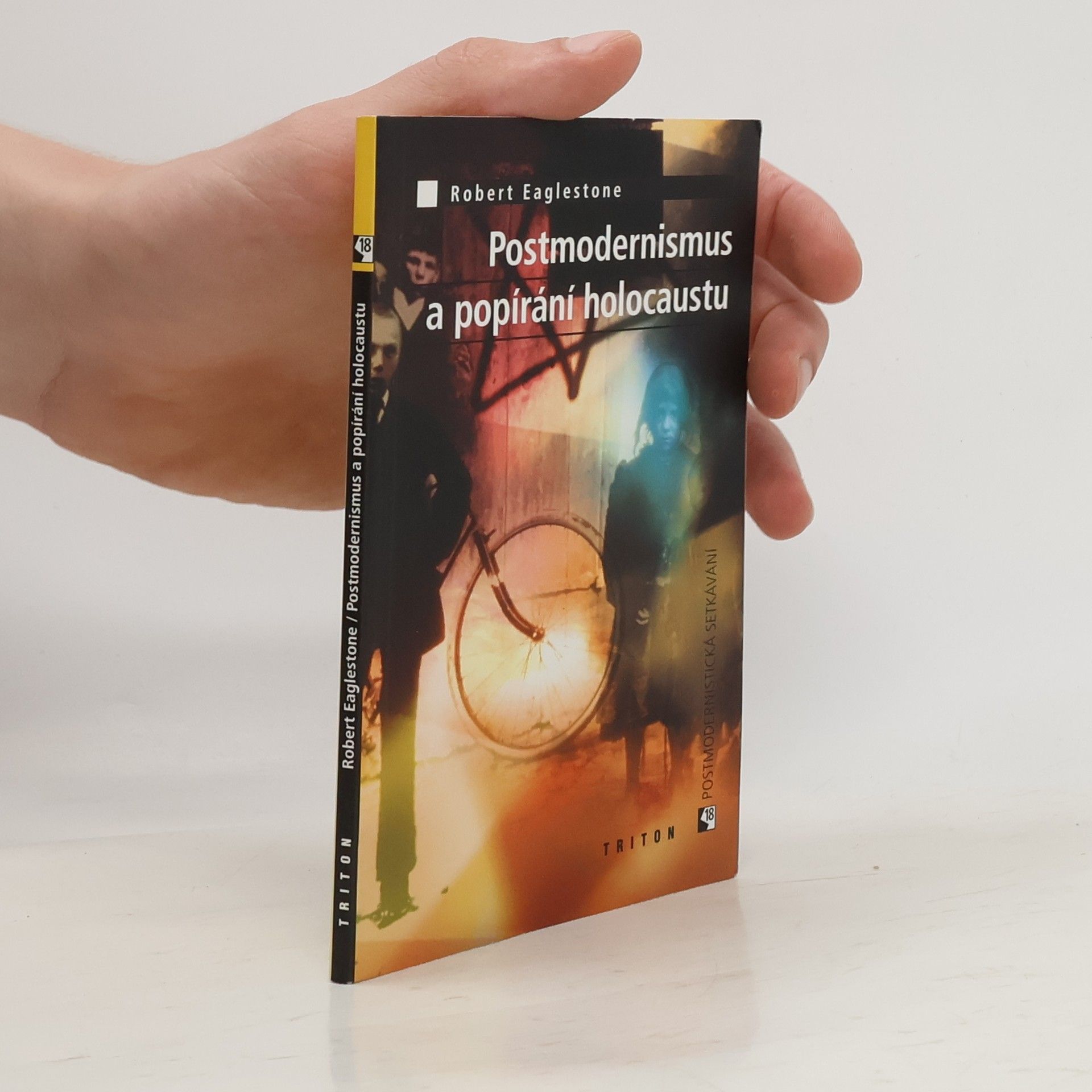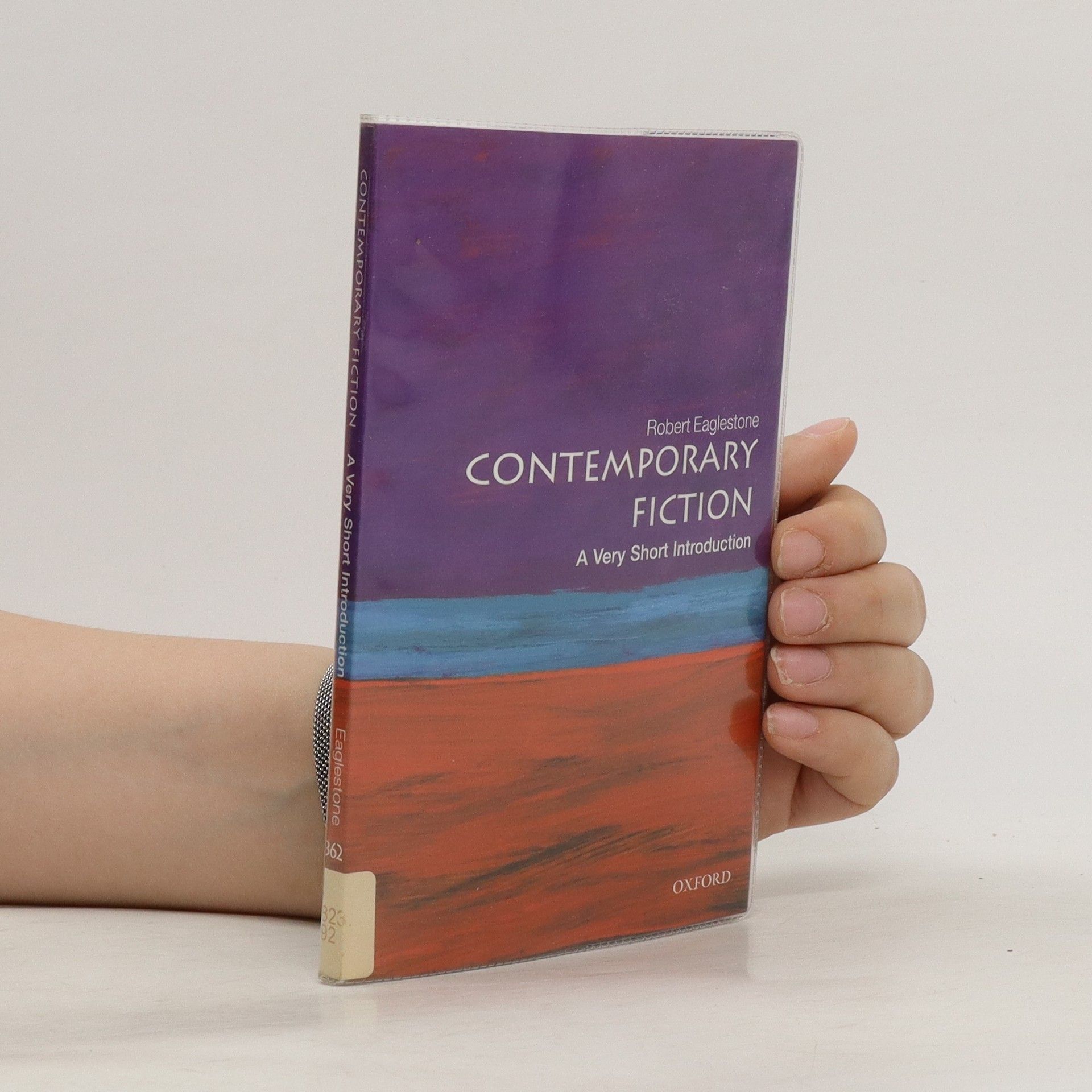Frantz Fanon
- 162pages
- 6 heures de lecture
This book serves as an introduction to the views of the anticolonial thinker Frantz Fanon and charts his influence on postcolonial studies, literary critism, and cultural studies.
Robert Eaglestone est un universitaire et écrivain britannique dont l'œuvre explore en profondeur la manière dont la littérature « pense » et enquête sur des questions éthiques. Ses recherches se concentrent sur la littérature contemporaine, la théorie littéraire et la philosophie européenne moderne, s'appuyant souvent sur des perspectives issues des études sur la mémoire et le trauma. Eaglestone s'intéresse à la manière dont la littérature aide les individus à se comprendre eux-mêmes et le monde contemporain. Ses écrits soulignent que la fiction contemporaine est un outil crucial pour explorer et façonner notre identité actuelle.






This book serves as an introduction to the views of the anticolonial thinker Frantz Fanon and charts his influence on postcolonial studies, literary critism, and cultural studies.
In thie Very short introduction Robert Eaglestone explores the major themes, patterns, and debates surrounding the contemporary novel. From genre, form, and experimentalism, to the relationship between globalization and terror, and the impact of technology, Eaglestone examines how contemporary fiction reflects both the world in which we live and the artistic concerns of writers and readers alike. -- Cover.
Questioning not just literary but social, political and cultural assumptions about knowledge and power, Greenblatt's work has had a huge impact on contemporary theory. This work discusses ideas specific to particular works and explores the relation of Greenblatt's thought to new historicism as well as other modes of criticism.
The book offers an accessible introduction to the philosophies of Plato and Aristotle, highlighting their significant impact on literary and cultural studies, as well as modern languages. It explores how their ideas continue to influence contemporary reading, thinking, and everyday life, making complex concepts understandable and relevant to various disciplines.
Deborah Lipstadtová, americká akademička, označila Davida Irvinga, popíratele holocaustu, za „hitlerovského partyzána, který nosí klapky na očích“. On ji poté zažaloval a ve zcela jasném případě prohrál. Soudce prohlásil, že Irving „vytrvale a záměrně dezinterpretuje a manipuluje s historickými důkazy“ a je to „antisemita a rasista“. Tato kniha vysvětluje a prozkoumává sporné otázky, které byly v sázce v Irvingově případě. Podle Lipstadtové někteří historikové věří, že postmodernistické ideje vyvolávají fenomény, jako je popírání holocaustu. Jiní prosazují názor, že „relativismus“ postmoderní historie „zlehčuje mrtvé“. Jsou tato tvrzení pravdivá? Nebo se snad kritikové postmodernismu v tomto případě hluboce mýlí? Kniha Postmodernismus a popírání holocaustu ukazuje, že otázky, které postmodernismus historii a historikům klade, jsou ve skutečnosti mocné zbraně v boji proti popírání holocaustu. Robert Eaglestone zcela jasně a bez vědeckého žargonu zkoumá takové otázky jako: Co je to historie? A jak historie stanovuje své nároky na objektivitu a nestrannost? Toto jsou otázky, které nejenže odhalily Irvinga jakožto nehistorika, ale také ospravedlnily postmodernistickou reakci na popírání holocaustu. Robert Eaglestone přednáší na Anglickém oddělení v Royal Holloway na Londýnské univerzitě. Zaměřuje se na současnou evropskou filosofii a literaturu.